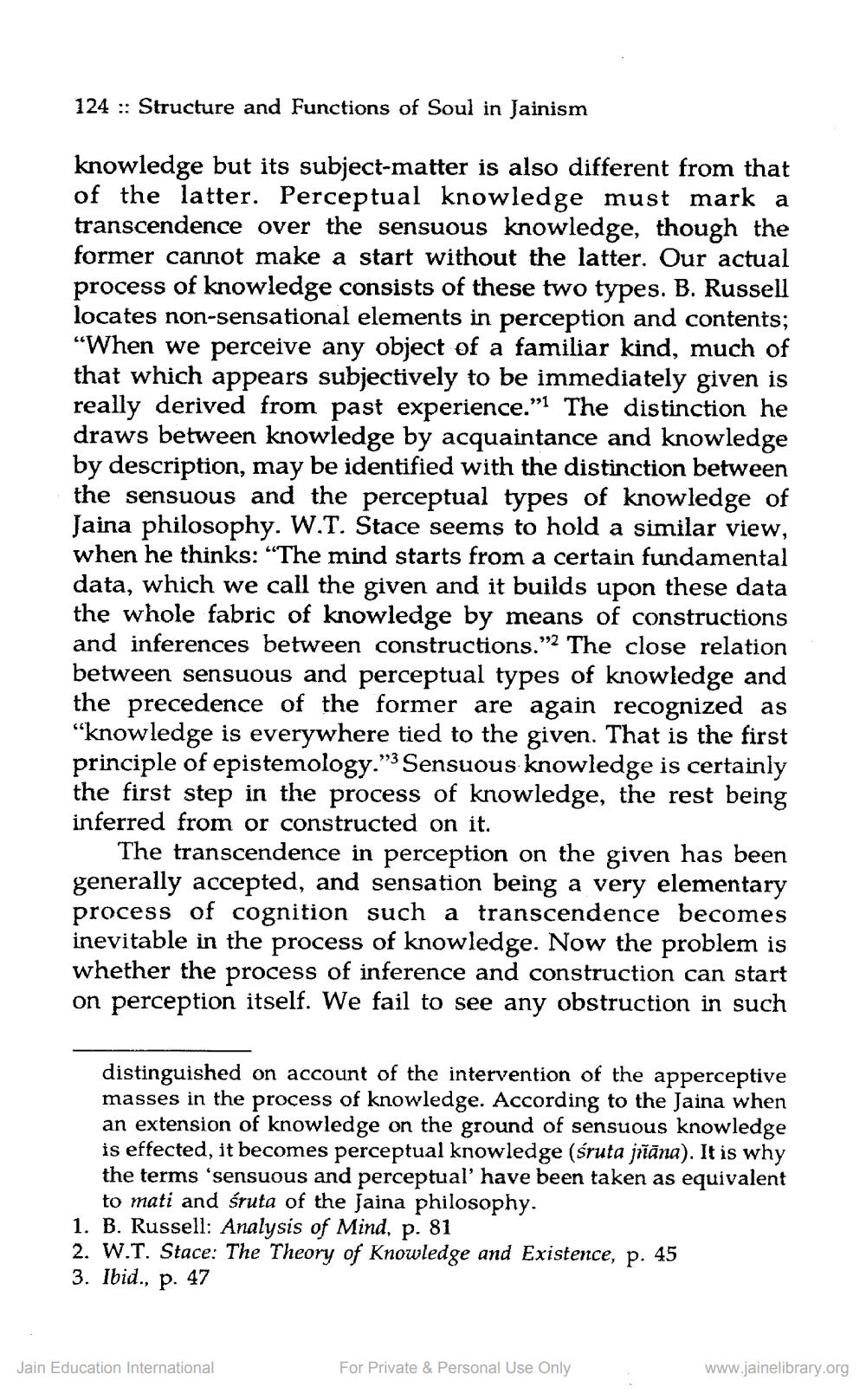________________
124 :: Structure and Functions of Soul in Jainism
knowledge but its subject-matter is also different from that of the latter. Perceptual knowledge must mark a transcendence over the sensuous knowledge, though the former cannot make a start without the latter. Our actual process of knowledge consists of these two types. B. Russell locates non-sensational elements in perception and contents; "When we perceive any object of a familiar kind, much of that which appears subjectively to be immediately given is really derived from past experience."1 The distinction he draws between knowledge by acquaintance and knowledge by description, may be identified with the distinction between the sensuous and the perceptual types of knowledge of Jaina philosophy. W.T. Stace seems to hold a similar view, when he thinks: “The mind starts from a certain fundamental data, which we call the given and it builds upon these data the whole fabric of knowledge by means of constructions and inferences between constructions." The close relation between sensuous and perceptual types of knowledge and the precedence of the former are again recognized as "knowledge is everywhere tied to the given. That is the first principle of epistemology." Sensuous knowledge is certainly the first step in the process of knowledge, the rest being inferred from or constructed on it.
The transcendence in perception on the given has been generally accepted, and sensation being a very elementary process of cognition such a transcendence becomes inevitable in the process of knowledge. Now the problem is whether the process of inference and construction can start on perception itself. We fail to see any obstruction in such
distinguished on account of the intervention of the apperceptive masses in the process of knowledge. According to the Jaina when an extension of knowledge on the ground of sensuous knowledge is effected, it becomes perceptual knowledge (śruta jñāna). It is why the terms 'sensuous and perceptual' have been taken as equivalent
to mati and śruta of the Jaina philosophy. 1. B. Russell: Analysis of Mind, p. 81 2. W.T. Stace: The Theory of Knowledge and Existence, p. 45 3. Ibid., p. 47
Jain Education International
For Private & Personal Use Only
www.jainelibrary.org




